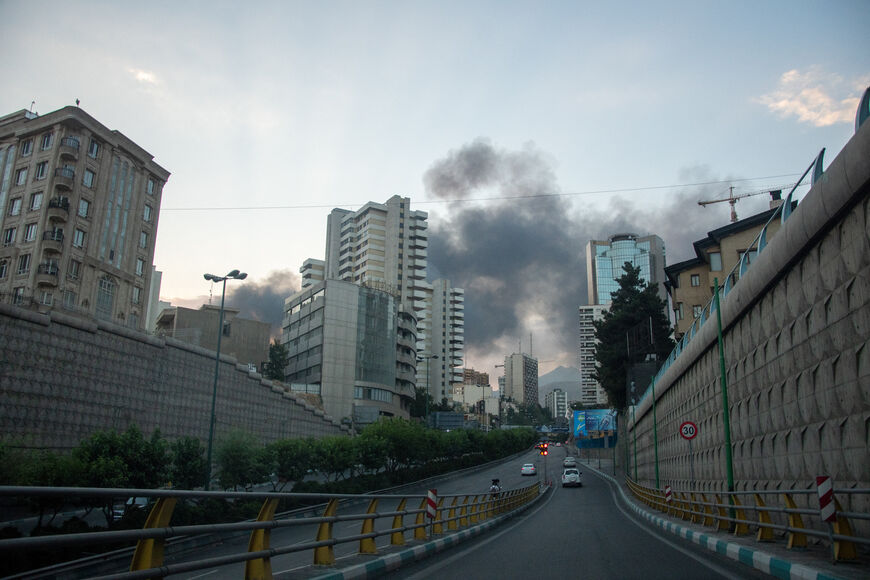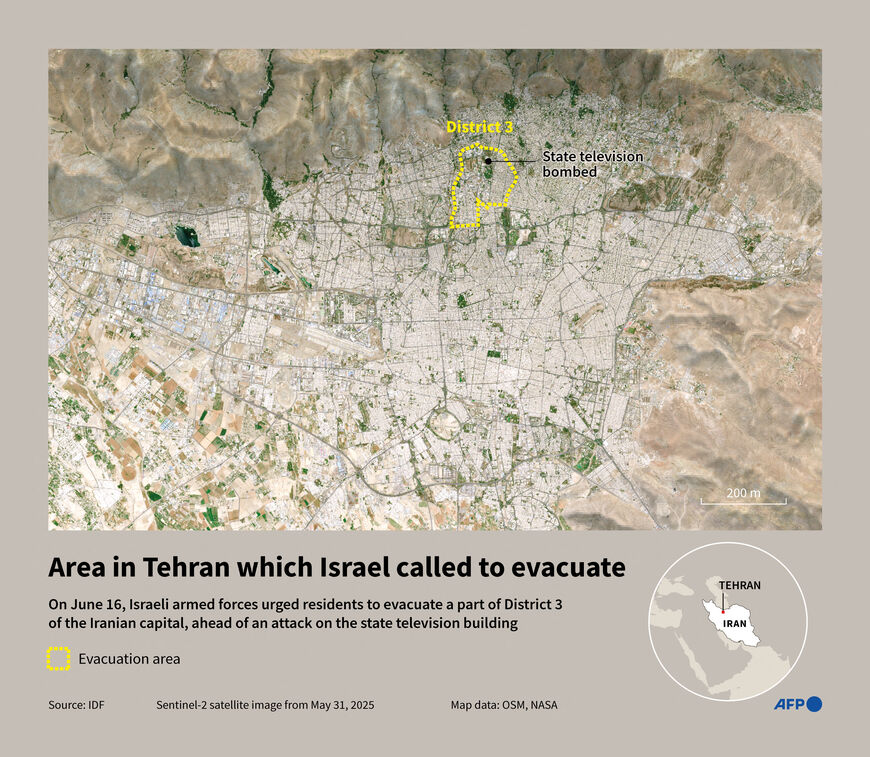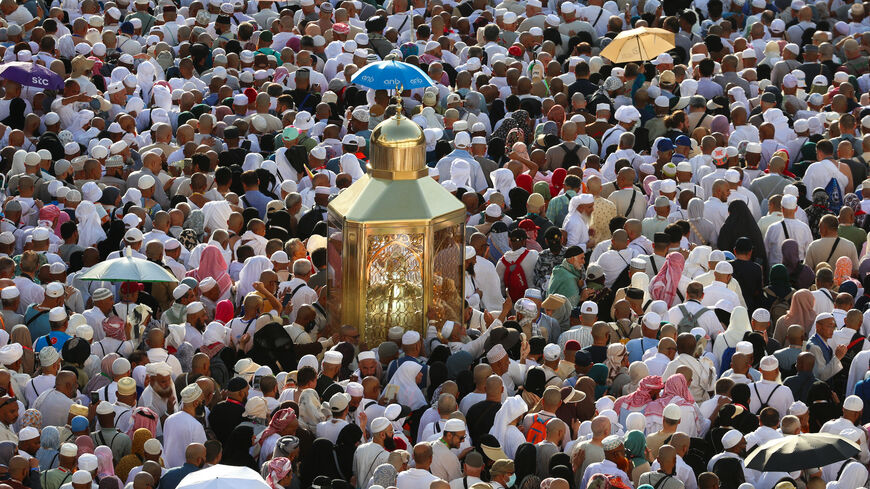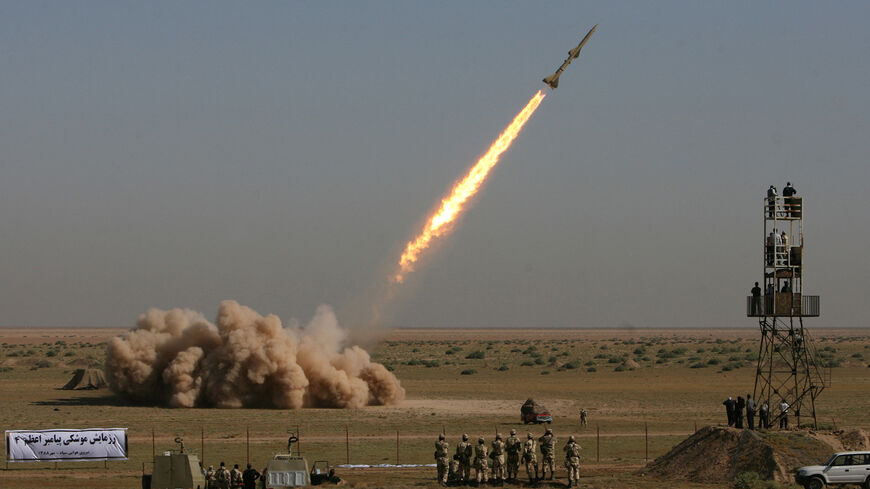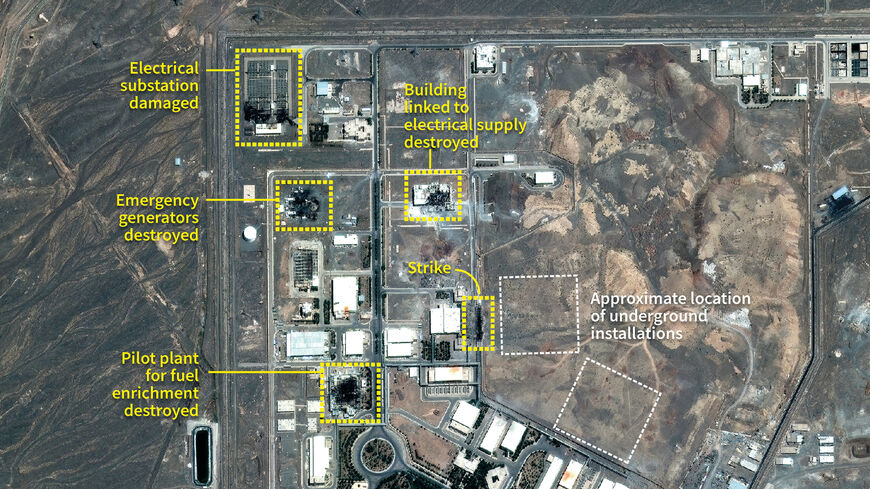Exodus, shortages and strikes: Tehran reels under weight of Israel-Iran war
Israeli strikes on Tehran have continued, prompting evacuation warnings, creating fuel and internet disruptions, and adding to the growing number of residents who are fleeing the capital.
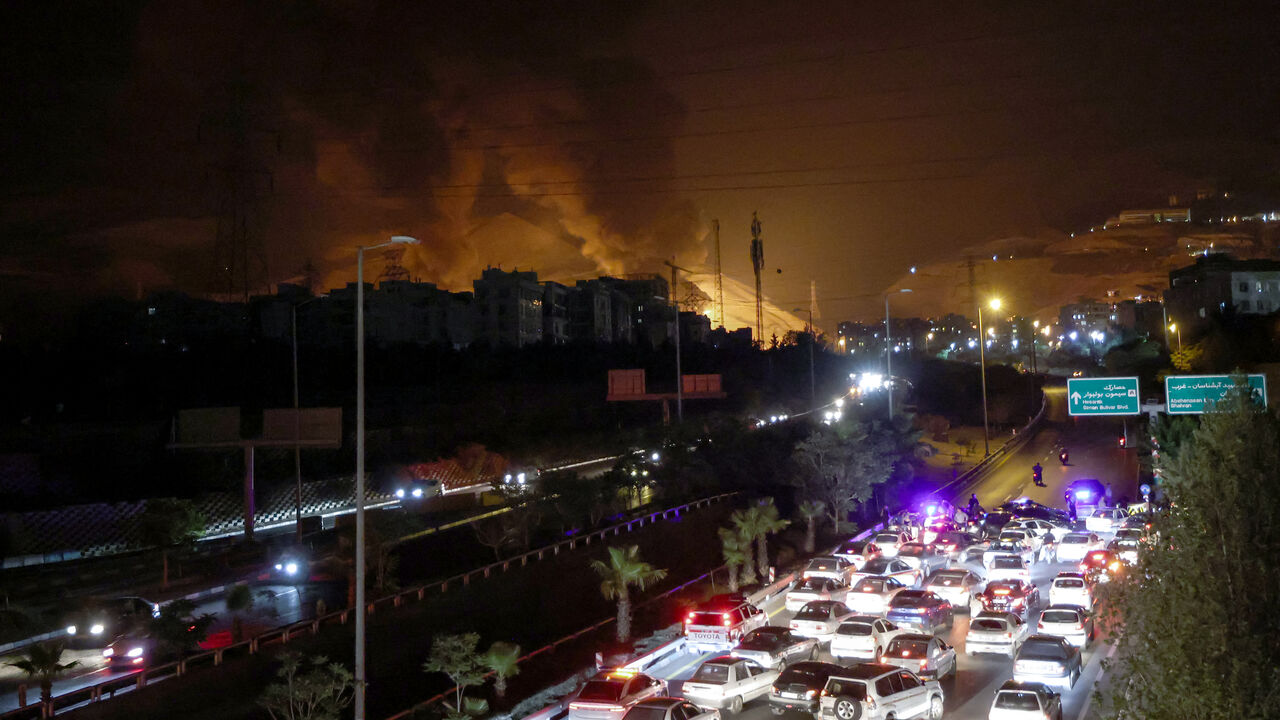
As the war between Israel and Iran enters its fifth day, with US President Donald Trump threatening to enter the conflict, residents of the Iranian capital, Tehran, are fleeing the city amid growing shortages and intensifying Israeli strikes.
According to Iranian state media, Israeli strikes have killed at least 224 people and injured more than 1,800 in Iran since Friday, with the majority of these strikes hitting Tehran.
Iranians flee the capital
On Monday, the Israeli military issued an evacuation warning for parts of northern Tehran, prompting a wave of residents to flee the city. "Immediate warning to all individuals present in the area indicated on the attached map in District 3 of Tehran. In the coming hours, the Israeli army will take action in this area to attack the Iranian regime's military infrastructure," the Israeli military posted to its Farsi account on Monday.
Tehran, located in the north of the country, is home to over 9 million people.
By evening, new airstrikes were reported on what appeared to be residential buildings in northwestern and eastern Tehran as well as near the city’s Mehrabad Airport and at the headquarters of Iran's state broadcaster, Islamic Republic of Iran Broadcasting.
Later that night, US President Donald Trump posted on Truth Social: "Everyone should immediately evacuate Tehran," a message that quickly spread on Iranian social media and caused fresh waves of panic across the capital.
Even before Trump's post and the Israeli evacuation orders on Monday, videos circulated on social media showing cars streaming out of the city; many residents appeared to be heading for the countryside or to northern provinces.
#Iran citizens escape capital #Tehran and markets shut down as Israeli jets dominate city skies and agents on the ground assassinate senior regime officials. Some clips viral on Iranian and Arab social media in this #thread 1/5pic.twitter.com/dFHFbeVeX2
— Ahmed Quraishi (@_AhmedQuraishi) June 16, 2025
As residents leave the city, Tehran has become increasingly barren. On Monday, Tehran's biggest marketplace, the Grand Bazaar, closed, as did most shops in the city. Over the weekend and on Monday, open grocery stores in the capital saw long lines as residents prepared for continued strikes.
Others, however, took to social media to describe how they refused to leave or felt "stuck," according to one user, who said "There's no gas. There's still traffic."
Some residents who remained in the city described their experience as strikes hit nearby buildings, with many calling the situation "chaos." One user said, "Never before had a missile hit so close to me. The sound of a rocket whistle, explosions and severe shaking of the building."
One user said she hadn't slept "for several nights and days." Many users voiced fear over relatives and parents remaining in the city.
Tehran lacks modern bomb shelter infrastructure, so residents have sought refuge in underground metro stations, mosques, basements and schools, as well as older shelters dating back to the Iran-Iraq War in the 1980s — the last time the country faced a national emergency of this nature.
In an interview with ABC News on Monday, Israeli Prime Minister Benjamin Netanyahu said that Israel’s military operations were being conducted in “a judicious and precise manner that is completely opposite to the indiscriminate bombing of civilians that Iran is doing.”
“Unlike the Iranian criminal regime, we’re telling the people, 'Leave, leave the zone of battle so that you’re not hurt,'” Netanyahu said.
On Sunday, Israel said more than 80 positions had been hit in Tehran alone.
Resources and infrastructure
On Friday, Iran’s Ministry of Communication said that “temporary restrictions have been imposed on the country’s internet,” according to semiofficial ISNA news agency. The ministry said that the restrictions would be lifted “once normalcy returns.”
On Sunday, at around 4 p.m. local time, an Israeli missile struck northern Tehran’s Tajrish Square and appeared to hit a water pipeline, causing flooding. Iran’s Energy Ministry condemned the attack and said in a statement that technicians had been sent to repair the broken pipe, adding that water supply to customers in northern Tehran was normal.
Also on Sunday, Israeli drones struck two oil depots in Tehran — the Shahran and Rey depots. According to a New York Times report, gas stations are closing and those that remain open are imposing a limit of 10 liters of fuel per car.
Iranian X users have reported similar restrictions on fuel, with one user reporting that gas stations give "25 liters max."
The strikes come as Iran faces a wider energy crisis. Despite holding the world’s second-largest proven natural gas reserves, the country has struggled for years with mismanagement, underinvestment, and the effects of US and international sanctions, which have hampered infrastructure upgrades and maintenance. Since November 2024, Iranian authorities have implemented rolling blackouts in Tehran and other provinces to conserve energy.
The crisis worsened in mid-December, when fuel shortages led to the shutdown of at least 80 power plants, forcing widespread closures of schools, banks and government offices. With the summer months now bringing increased electricity demand, the strain on Iran’s power grid has intensified, and the strikes are likely to deepen the crisis. Water resources, too, have been strained for the past year, as declining rainfall and longstanding mismanagement have pushed reservoirs to critically low levels.
On Saturday, Iran's Supreme Council of the Stock Exchange announced that the Tehran Stock Exchange would close for three days. By Tuesday, Iran's Tasnim News Agency reported that the market would remain shut until Sunday, including Iran's energy and commodities exchanges.
Since Friday, Iran has also suspended all flights to and from its main Khomeini International Airport, located on the outskirts of the capital, and closed its airspace. The Civil Aviation Authority said the restrictions would remain in place until further notice "in order to protect the safety of passengers."
